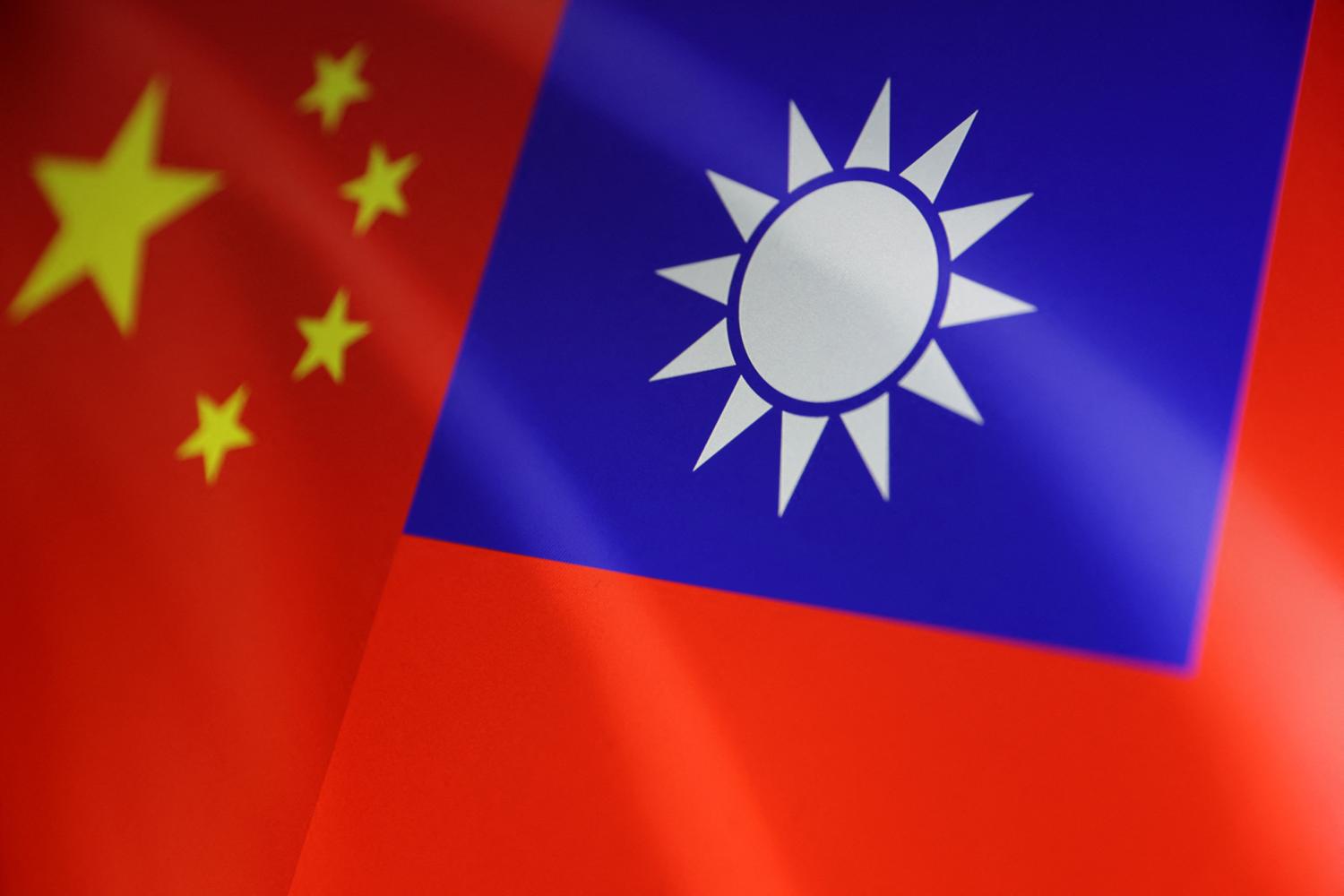The following is a summary of the 16th session of the Congressional Study Group on Foreign Relations and National Security, a program for congressional staff focused on critically engaging the legal and policy factors that define the role that Congress plays in various aspects of U.S. foreign relations and national security policy.
On October 29, 2021, the Congressional Study Group on Foreign Relations and National Security convened over Zoom to discuss legal and policy issues surrounding a possible military conflict between the United States and the People’s Republic of China (PRC) over Taiwan. In recent months, China has ramped up its bellicose rhetoric and military activity in the Taiwan straits, leading Taiwanese, PRC, and American officials to increasingly discuss the possibility of a Chinese invasion of Taiwan. This has in turn raised questions over the legal authorities and obligations of the U.S. government in relation to Taiwan, including questions of recognition, arms sales, security commitments, and war powers.
The group was joined by two outside experts with extensive experience in this area: professor Julian Ku of Hofstra University School of Law, an expert in international law, constitutional law, and China-U.S. relations; and professor Margaret Lewis of Seton Hall Law School who focuses on the law in both China and Taiwan, with a particular focus on human rights. Lewis joined the study group remotely from Taiwan, where she was teaching and conducting field research.
Prior to the session, the presenters circulated the following recommended background readings:
- Julian Ku, “Taiwan’s U.S. Defense Guarantee is Not Strong, But It Isn’t Weak Either,” Lawfare (Jan. 15, 2016);
- Julian Ku, “President Trump Can Legally End the One China Policy and Station U.S. Troops in Taiwan,” Lawfare (Jan. 17, 2017);
- Margaret K. Lewis, “What Does Taiwan Want? It Wants to be Taiwan,” GlobalAsia (Mar. 2021);
- Amanda Hsiao, “China’s Military Activities Near Taiwan Aim to Impress at Home and Abroad,” International Crisis Group (Oct. 8, 2021);
- Tsai Ing-wen, “Taiwan and the Fight for Democracy,” Foreign Affairs (Nov./Dec. 2021) (written by Taiwan’s current president).
At the beginning of the discussion, Professor Lewis also recommended John Oliver’s segment on Taiwan, the CSIS report “Toward a Stronger U.S.-Taiwan Relationship,” and Richard Bush’s book “Difficult Choices.”
Professor Ku began the session by explaining some of the murkiness surrounding U.S.-Taiwan relations. He explained that despite PRC claims to the contrary, in 1979, when the United States recognized the PRC as China, the United States acknowledged that Taiwan is part of China, but never officially recognized Taiwan as part of China. Therefore, it remains undetermined whether Taiwan is or should be recognized; instead, the United States has generally declared that disputes over Taiwan’s status should be settled through peaceful means. Ku also explained the U.S. policy of strategic ambiguity, in which the United States does not specify whether it would defend Taiwan if it were attacked, though the United States (and the Biden administration) have strongly indicated it would.
Ku proceeded to explain how the president has considerable discretion over any official recognition of Taiwan pursuant to the Supreme Court’s 2015 decision in Zivotofsky v. Kerry, which held that the president has exclusive power over recognition in general, clarifying the president’s role. Ku argued that the 1979 Taiwan Relations Act should be seen as setting out a broad legal framework, with the president empowered to fill in the details on both official recognition and unofficial diplomatic relations.
He then argued that the president would also have considerable discretion in responding to a potential PRC invasion of Taiwan. Despite Biden’s recently walked-back statement that the United States is committed to Taiwan’s defense, the United States has generally been careful not to make any such commitment, given its policy of strategic ambiguity. Officially, the United States has only ever said that a PRC invasion would be a “grave concern,” which implies that it might respond militarily. In any event, the president would have broad discretion when it comes to a response. Ku acknowledged that a bill authorizing the president to use force in response to a PRC invasion of Taiwan is currently pending in Congress. But he focused on what the president could legally do without Congress. Ku expressed the view that President Biden would likely assert the constitutional authority to unilaterally deploy most forms of military force below a full-scale deployment of ground troops without congressional authorization. This would include the deployment of American naval and air forces in defense of Taiwan, which is the most likely type of response.
Professor Lewis then provided an overview of the current state of U.S.-Taiwan security cooperation. She discussed how Taiwan, which has historically focused its military on flashy equipment and large arms sales, recently adopted an Overall Defense Concept (ODC) that is intended to move Taiwan away from big-ticket defense equipment and toward asymmetric, “porcupine” defense that focuses on increasing the real costs of any invasion. The ODC aims not only to deter Beijing but also to give the United States and the international community time to respond.
Another positive development, she noted, has been greater cooperation via the Global Cooperation Training Framework, which trains Taiwanese civilians on resilience in the face of an attack, including handling such matters as long-term power outages. She also pointed toward Japan’s increasingly vocal support and encouragement on security and other matters and emphasized how important regional allies are to Taiwan’s defense. One concern she raised for the future was the upcoming 2024 election in Taiwan. While the incumbent President Tsai is unflappable and had proven able to adroitly promote Taiwanese interests without triggering a Chinese invasion, her successor could be much more of a wild card.
Finally, Lewis discussed the importance of advocating for greater Taiwanese participation in international institutions. She rejected Beijing’s characterization of UN Resolution 2758, which gave the People’s Republic of China control over China’s UN seat in lieu of Taiwan, as inaccurate; contrary to the PRC’s representations, the resolution did not bar Taiwanese participation in UN bodies. She particularly stressed the importance of overcoming the PRC’s refusal to allow Taiwan to participate in the World Health Organization, given Taiwan’s success dealing with COVID-19. She also argued that organizations like the International Civil Aviation Organization and Interpol should feature Taiwanese representation. However, she cautioned that giving Taiwan full UN member status was likely going too far, too fast and would hurt Taiwan’s reputation abroad.
She closed by urging members of the study group to never use the word “reunification,” because the PRC has never controlled China; or the phrase “pro-independence,” because the phrase makes it sounds like Taiwan is under the thumb of a foreign oppressor. She also emphasized the importance of the Taiwan Fellowship Act, currently in the 2022 National Defense Authorization Act, which would set up a fellowship exchange program for mid-career professionals in both countries.
From there, the study group moved to open discussion. Issues discussed included changes in Taiwanese public opinion and its effect on the cross-strait relations; Taiwanese citizens’ commitment to defense and military reform; whether a Chinese invasion of Taiwan is an inevitability and the PRC leaders’ cost-benefit analysis; and the role of international law.
Visit the Congressional Study Group on Foreign Relations and National Security landing page to access notes and information on other sessions.
The Brookings Institution is committed to quality, independence, and impact.
We are supported by a diverse array of funders. In line with our values and policies, each Brookings publication represents the sole views of its author(s).



